TAIF-NK professionals: having a shared sense of purpose
Operator, machinist, and laboratory assistant: what are the similarities and the differences between the same professions in different industries in oil and gas processing?
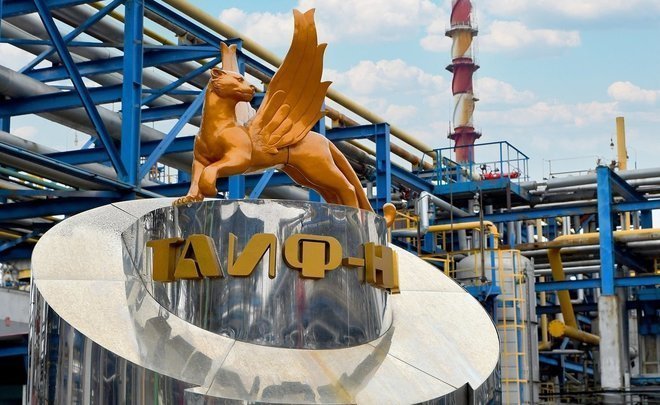
The Oil Refinery, Gasoline Plant, and Heavy Oil Distillation Residues Conversion Complex. All these are links in the same chain, where each subsequent stage complements and develops the success of the previous production. Realnoe Vremya continues to introduce the professions and professionals of one of the most innovative oil refining companies in Russia and the world.
TAIF-NK operators: tasks are the same, but technologies — different
The production site of TAIF-NK JSC is a real city, located next to Nizhnekamsk. As in a real city, it has its own microdistricts — factories, complexes and quarters connected by unified communications.
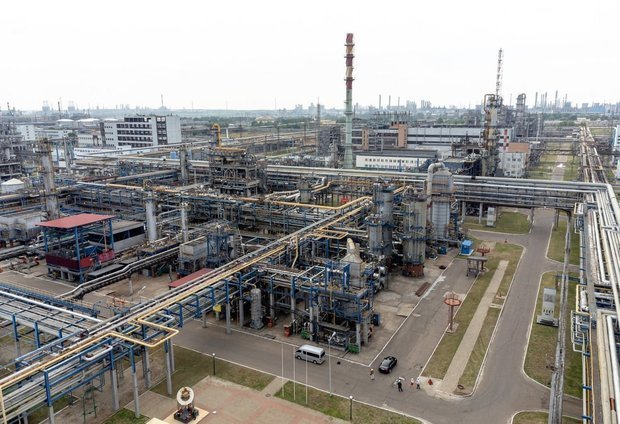
One of these microdistricts — the Oil Refinery, from which, or rather from the only primary oil refining unit ELOU AVT—7, the history of the entire company began at the end of the last century.
“The designers had to do their best to make the unit overgrown with the complex of hydrotreating of medium distillates, visbreaking unit. In parallel, the Bitumen Plant was built, commodity storages were expanded. A tremendous work was done — the huge plant was developed from one shop with the existing assortment of manufactured petroleum products," Vladimir Lakhomov, the director of the TAIF-NK Oil Refinery, told in an interview with Realnoe Vremya.
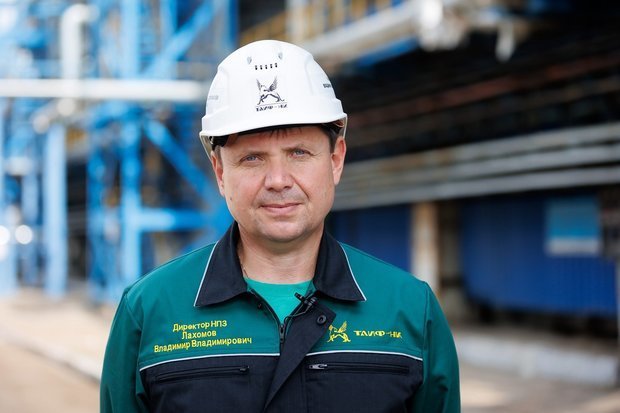
By the way, both he and Director General of the company Maksm Novikov at one time began their working career at TAIF-NK precisely at the Refinery as operators of technological units. The work is not easy, but it is very interesting — Aydar Vildanov, the operator of technological units of the workshop 01 of TAIF-NK Oil Refinery, is sure — the very one from which the processes of converting sulphurous oils into petroleum products necessary for the republic and the country begin.
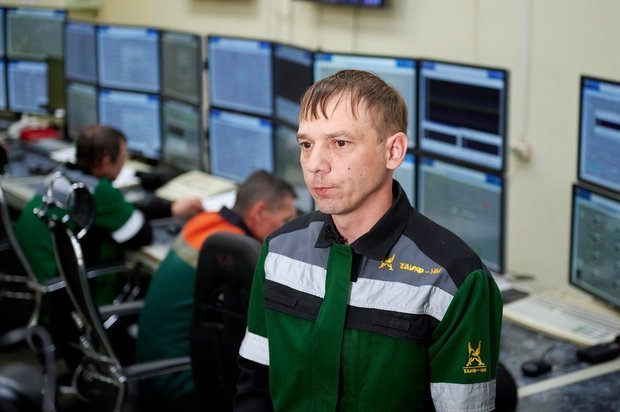
“I have worked as an operator of technological units at TAIF-NK for 7 years. I serve a block of ovens. The job is to observe a certain temperature regime so that the output of products is as efficient as possible. At a minimum temperature of 180-190°C, the lightest fractions are released. Kerosene and gasoline are produced from them. The higher the temperature, the heavier the fractions are given by raw materials: heating oil, tar, which goes to the HRCC, etc," the operator of the refinery shared in a conversation with the journalist of Realnoe Vremya. He also added: “Our shift lasts for 8 hours. It's never a dull moment there — time passes quickly. The work is very interesting. Crude oil is processed in our workshop, from which raw materials are obtained for further processing, that is, raw materials for kerosene, gasoline, jet fuel. Also, our straight-run gasoline goes to Nizhnekamskneftekhim as a raw material.
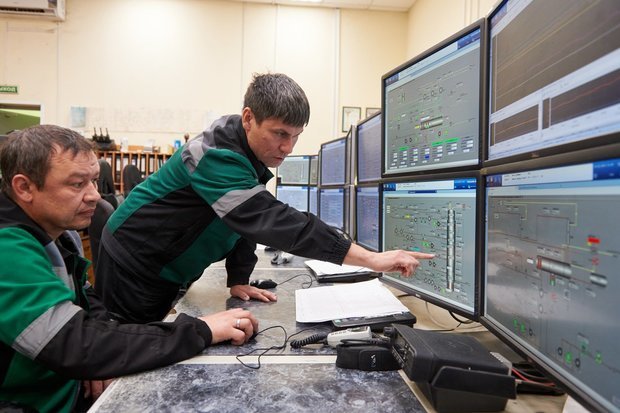
A person who is not privy to the nuances of the profession, when entering the operator room, he doesn't know where to look first: a lot of monitors, scales, graphs, curves, an abundance of numbers and data! How to keep track of everything and not miss something important?
“Actually, everything is much simpler: I am not the only operator here and each of us is responsible for his own block. And we have a very friendly team — we work as a whole every shift. Therefore, there is simply no worry or panic. Every young specialist who comes to work with us gets a mentor who helps him in practical training. And everything is fine (smiles).
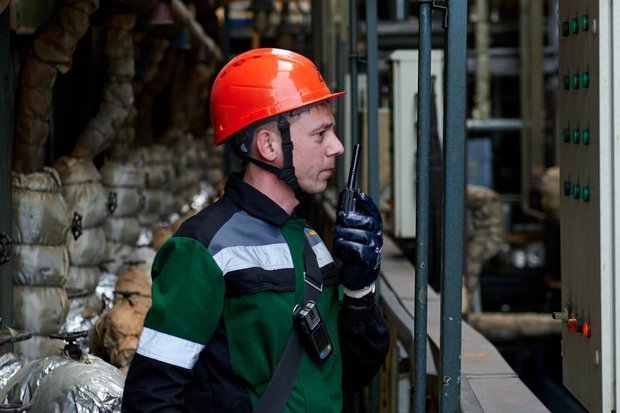
By the way, operators do not sit idle either. Technology, especially such a complex one as here, requires not only remote digital attention.
“In these ovens, crude oil is heated, and at a certain temperature and pressure, the products are released. To do this, it is necessary to maintain temperature stability. Therefore, we not only monitor the processes in the operator room, but also make the rounds of the unit," the specialist said already on the territory where he invited journalists with him.
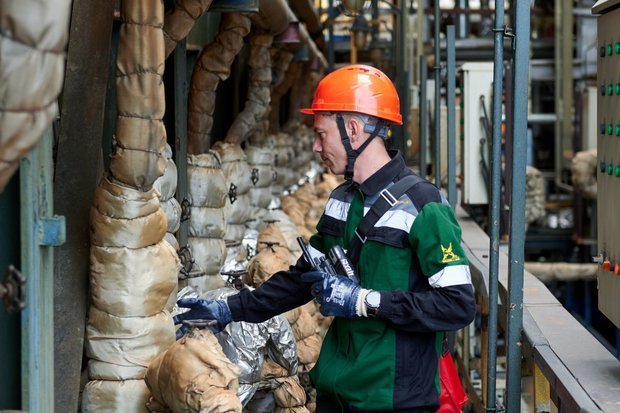
“Yes, our profession is called the same — wherever we work: here — at the Refinery, at Gasoline Plant, or HRCC: maintenance of blocks. And there is one task: to ensure efficient uninterrupted operation. But there are also many differences. Different productions — different technologies," notes Aydar Vildanov.
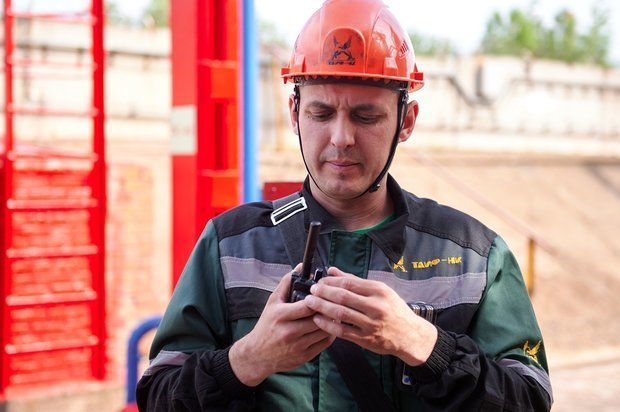
Ildar Aglyamov got a job as a locksmith of the 4th category at TAIF-NK in March 2006. Today, he is the operator of the 6th category of the gas condensate processing shop of the Gasoline Plant. The journalists met with the specialist when he, as well as his colleague at the Refinery, was making a round.
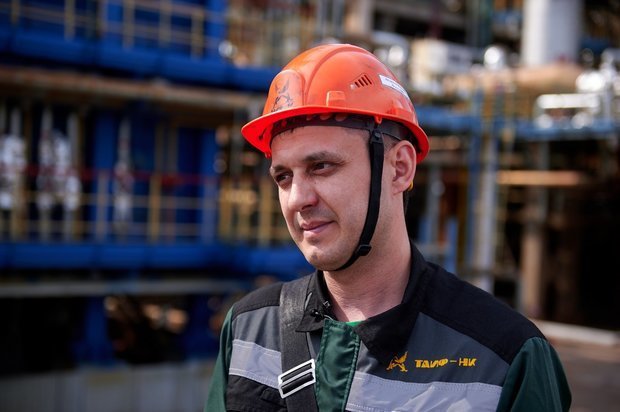
“At first, I studied for advanced training as a locksmith — I received a higher grade. Then I decided to grow further and, with the support of the company's management, I was trained as an operator. I have passed through all the steps and now I have the 6th category," the specialist said in an interview about his professional growth.
As Ildar Aglyamov himself admitted, it is impossible not to love work such as his. Especially when you realise that in many ways that surrounds us today, there is a piece of his and his colleagues' work: straight-run gasoline goes to petrochemical enterprises, where all kinds of polymers are obtained from it, diesel fuel and LPG, cars drive, kerosene is also in demand.
“I have worked for already 17 years and I am satisfied with my work. Our team is friendly. There are machinists and operators in the shop. Everyone has their own area of responsibility. Our main task is to conduct the technological process, the mode of safe and efficient work with the release of finished products at the stages of production," said Ildar Aglyamov. Then he turned with pride to the huge unit behind him: “Here is the equipment for which we are responsible: a block of ovens, a block of columns …
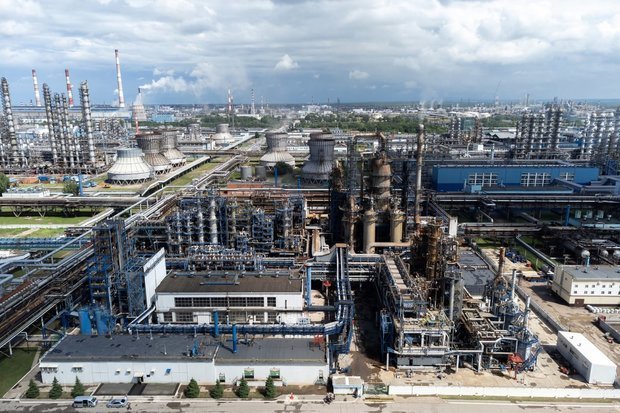
To the journalist's question about how he, as an operator of technological units of the Gasoline Plant, advised the youth who are now deciding on the choice of their future job. Ildar Aglyamov answered immediately:
“Working professions are always in demand! Especially now. Get a specialised education and come to us, at TAIF-NK. Here everyone will have the opportunity to realise themselves. Desire is the most important thing! I will say about myself: working for TAIF-NK, I am definitely confident in the future, calm for myself and my family. I have not just colleagues here, but friends. And, of course, decent wages, social guarantees and, no less important, the attention of the management, which is always ready to support purposeful, ambitious, determined for the best result specialists.
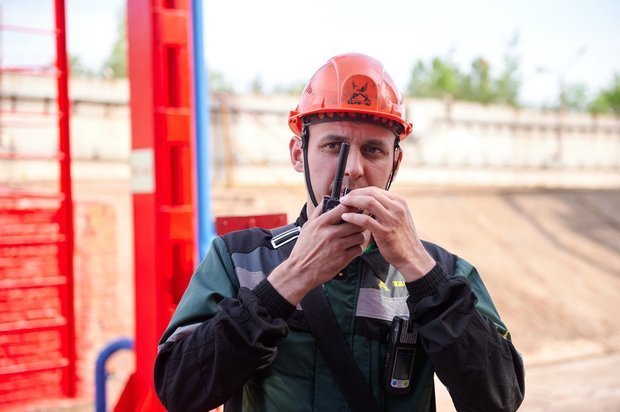
“We have the unique technology. Not only for Russia, but also for the world. Accordingly, in the work of the operator of technological units at the HRCC, there are nuances and differences from the tasks that our colleagues perform at other industries," Maksim Mudrenov, the operator of technological units of the 7th category of shop 01 of the Heavy Oil Distillation Residue Complex, shared with the journalist of Realnoe Vremya with pride for his work.
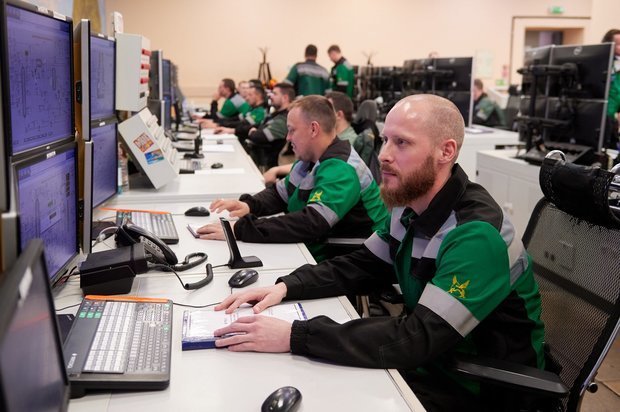
He has worked at the company since 2016. He moved from a petrochemical company with the 5th category. As he admitted with slight embarrassment, curiosity led to the oil refining.
“There is also the latest equipment and unique technology. As a specialist, I wanted to try my hand. Today I do not doubt the correctness of my decision. I got a unique experience.
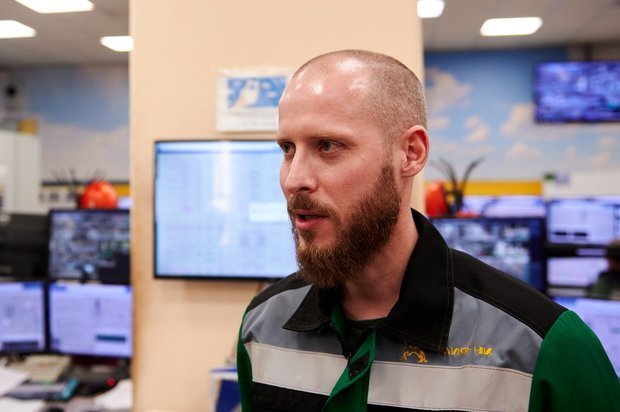
And also the understanding that the operators at any of the productions of the entire TAIF-NK JSC, as well as its entire multi-thousand-strong team, each at his post, with their differences and nuances in approaches, technologies and tasks, work as a result for one common goal:
“Yes, the production facilities are different, the technologies are different, but they are built under the general guidance into a single, complementary chain aimed at increasing the depth of processing of crude oil and extracting light oil products from it. I am sure that not many years will pass and the technologies implemented here will become the basis of the oil refining of the future. It's nice to know that today we are in the team that stands at the origins of these processes.
Teamwork
Machinists work in professional tandem with operators. And if the first task is to comply with technological processes, then the second is to ensure these very processes: the supply of raw materials, the redirection of intermediates and finished products. Oleg Lesovoy has been working at the refinery as a process pump operator for almost 18 years. In conversation — a merry fellow and a joker, in work — an accurate and responsible specialist.
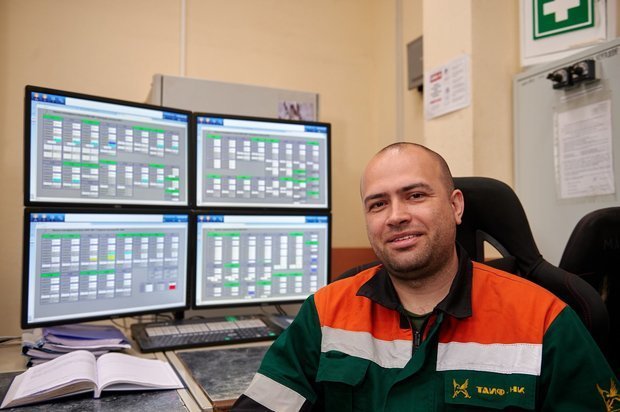
“I came to the TAIF-NK Oil Refinery in October 2005. Then I had the third category. Today -the fifth. Moreover, I came directly to this shift and I have known many of the people I work next to for all these 18 years. Yes, new specialists also come, we try to help them join the team, to establish smooth operation. And there is success in this (smiles). I like this business: live processes, good people with whom it is pleasant to work," the specialist shares with the journalist of Realnoe Vremya.
According to the shift schedule, the machinist was just scheduled to make the rounds of the equipment entrusted to him. With the permission of the shop manager, Pavel Gavrilov, he took journalists with him.
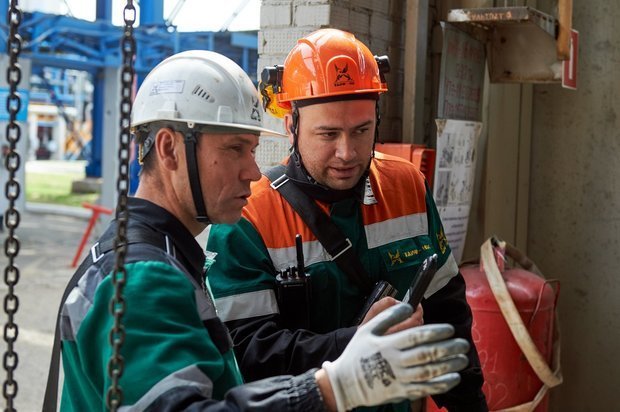
“The production of such a plan as we have: distillation of oil with separation into fractions, this is teamwork. It is impossible to refine oil without using pumps. So the delivery of raw materials or products from point A to point B is our task. We are an integral part of a single production," Lesovoy noted on the way to the place.
The equipment of the machinists is noisy and, in general, production is not easy, so there is a special emphasis on compliance with safety regulations and the mandatory use of personal protective equipment.
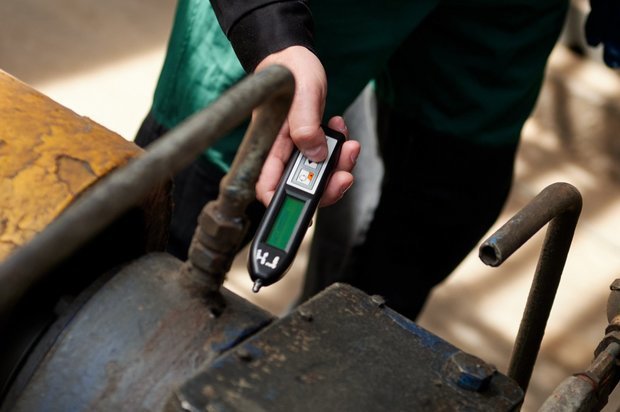
“Our unit is divided into four blocks. Accordingly, there are four machinists in each shift. We work in a team. One just can't do it, because the unit is large, there are many pumps, the volumes are large, the pumps are serious, powerful, there are also plenty of monitoring parameters: temperature, vibration, pressure, many auxiliary systems, that is, air pressure on the engine shell, oil pressure on the bearings… Quite a lot (smiles). Every 2 hours we also measure vibration directly on the equipment itself. And the stationary system collects data online," the machinist briefly introduces journalists to his work.
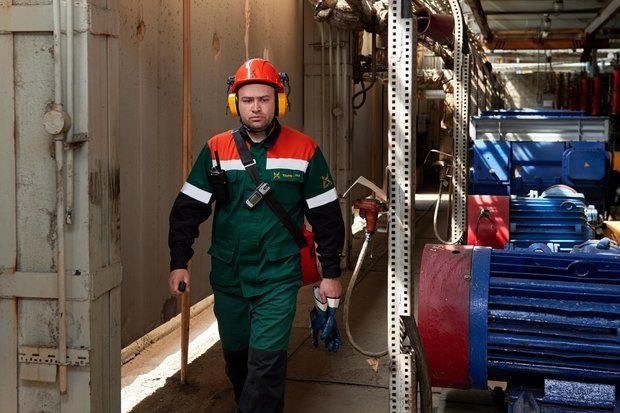
Oleg Lesovoy speaks of huge and powerful machines as living organisms. And this is another proof that a person does what he loves:
“Pumping equipment for production is like a circulatory system, and the machinist for this whole establishment is a doctor. If the heart is pounding incorrectly, our task is to adjust the work. To begin with, since we have non-stop production, we switch to backup equipment as quickly and painlessly as possible. And then we promptly put the blocked pump in order. This is the task of our team. And we, the machinists, are complementary and interchangeable. When one is on his rounds, his colleagues monitor the readings in the operator room.
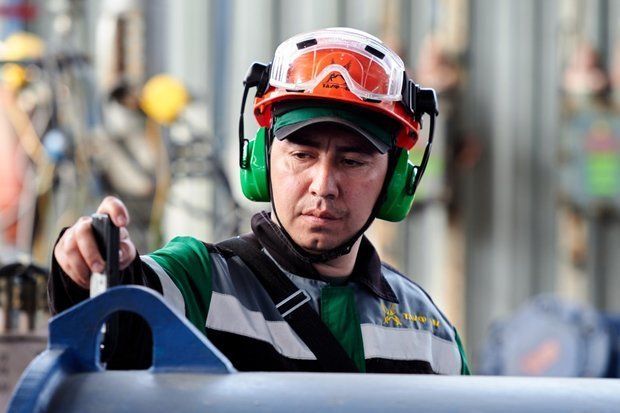
Ilnar Akhmetov has worked for TAIF-NK for 13 years. He moved from the tyre factory. He first got a job as a drainer at the Gasoline Plant. A year later, he completed retraining, and now for already 12 years he has been making sure that the pumps in production work like clockwork: accurately and non-stop.
When asked about the reasons for choosing the profession, the machinist of technological pumps of the 5th category answered simply:
“Each person, of course, has their own interests: someone wants to be a courier or a marketer. Those who are interested in stability and those who like to see the results of their work live go to production. At oil refiners' work, everything is clear: do you need raw materials for petrochemistry? Gasoline? Diesel fuel? Fuel for airplanes? Of course, they need it! We see the results of our work every day — the shipment is constantly carried out by all means of transport.
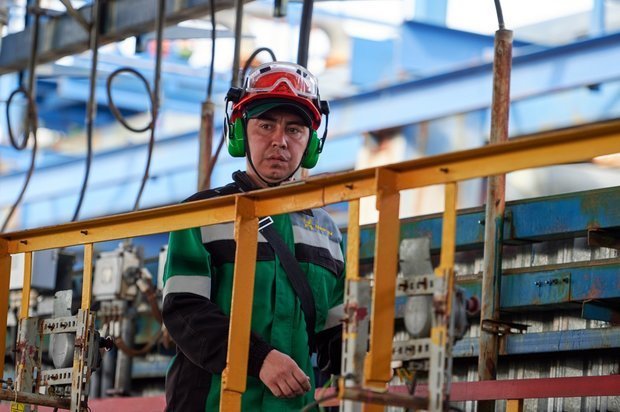
The equipment, the performance of which is monitored by Ilnar Akhmetov, ensures the supply of raw materials under pressure — gas condensate to storage tanks, and from there to the processing unit.
“All this establishment is hard-nosed," the specialist laughs and adds, “everything happens, sometimes the pumps are capricious, but we know them thoroughly. We work together in a shift and guarantee that everything is under control and we will not allow any failures.
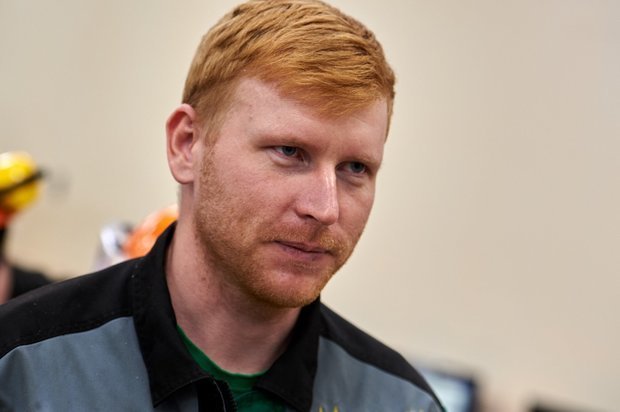
Dmitry Kleshnin works on children's books in his spare time. And at the HRCC, he has been a machinist of technological pumps of the shop 03 — conversion of natural gas — since 2015. For an answer to the question of what attracted him so much to work in oil refining, he exactly knew what to answer:
“This is a man's profession. This, if viewed by gender (laughs). Well, the second reason: the opportunity to work at a modern enterprise, on modern unique equipment — I'm talking about HRCC now. However, TAIF-NK and other production facilities are actively updated. Finally, it is an interesting job with stable earnings and almost limitless opportunities for professional development.
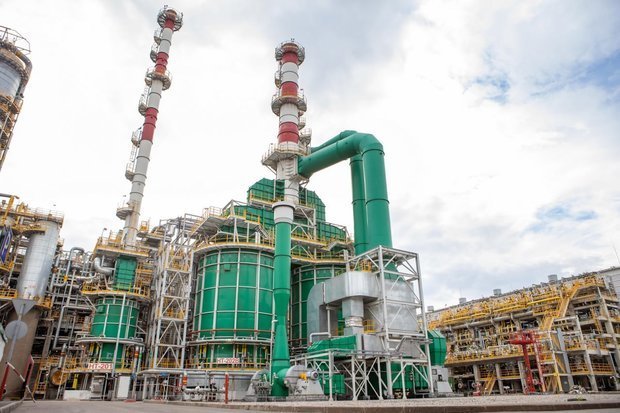
On the question of what is the difference in the work of specialists whose profession is called the same “machinist”, but in different industries, he paused:
“Actually, we all solve common problems: machinists here — at the HRCC, at the Refinery, at the Gasoline Plant. It's just that the equipment is different, the processes are slightly different and, accordingly, the products that are produced. But everyone has the same goal: non-stop and trouble-free operation of all production facilities of the company as a whole.
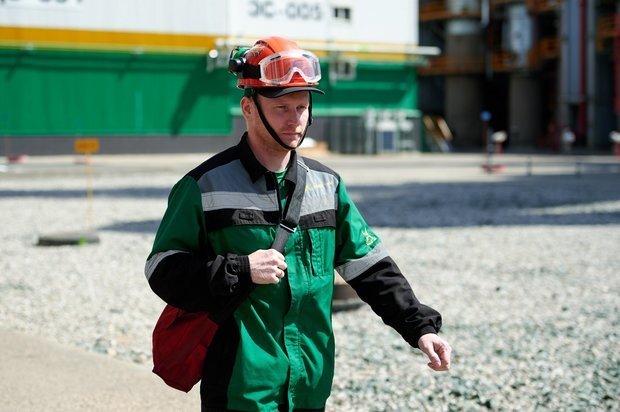
The range of tasks for the machinists of the process pumps of shop 03 is extensive:
“We service the flare unit and the air separation unit. We are part of a huge system, a huge mechanism. A necessary part of it. But we can say the same about all our colleagues. We are inseparable from the operators of technological units and the work of each of us is important for the efficiency, trouble-free, non-stop operation of the complex as a whole," the specialist is sure.
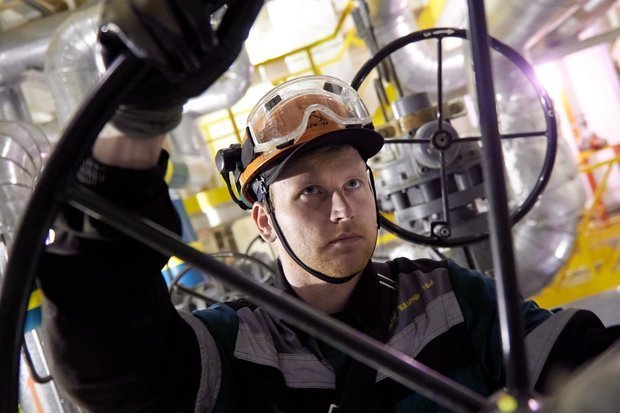
And as for the vastness of tasks, high technologies work in tandem with people:
“Of course, in such a complex and rather large organism as our Complex, it is necessary to constantly keep abreast of the processes taking place. Here, technology comes to the aid of a person: part of our work takes place remotely, due to the implemented technologies, automation. Everything that happens at the facilities, we see on the monitor screens in real time. But the human factor is also an important component. Rounds — according to the schedule: every 2 hours.
Laboratories are the most important part of production processes
The three following heroines of our material agree on this — laboratory assistants of chemical analysis of the productions of TAIF-NK JSC.
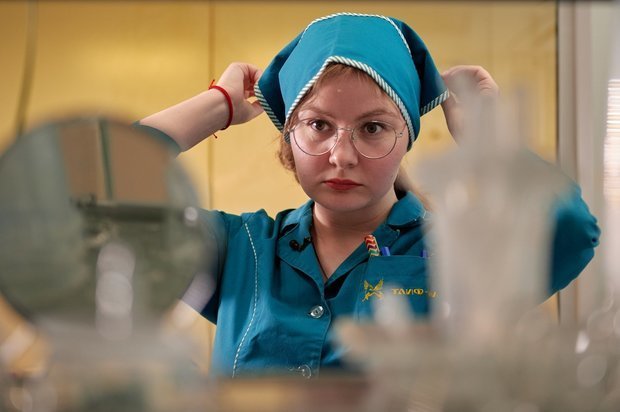
Veronika Shugurova has worked at the refinery laboratory for 5 years. Young and promising specialists were invited by the head of the laboratory — Margarita Urmanova (recently awarded the honourary title of Honoured Chemist of the Republic of Tatarstan — editor's note).
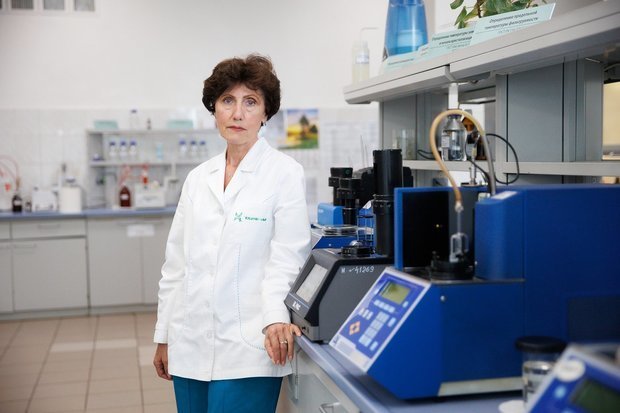
“It was in college that I got acquainted with the specialty 'laboratory assistant of chemical analysis' and chemical analysis. That's when I realised that this is mine, that I really like it and that's what I want to do. During the exam, several girls and I from our round of admission received an offer from Margarita Mikhailovna to get a job there," Veronika Shugurova told the journalist.
Today, the young woman is working as a laboratory assistant — she prepares reagents for further research. The work is responsible, the success of quality control of both raw materials and finished products depends on it.
“This is a very small and meticulous work, everything should be clear and almost gentle here," the young woman shares her impressions and adds — the equipment does not tolerate rough treatment. It is necessary to have a clear understanding of the task being performed, this comes with experience.
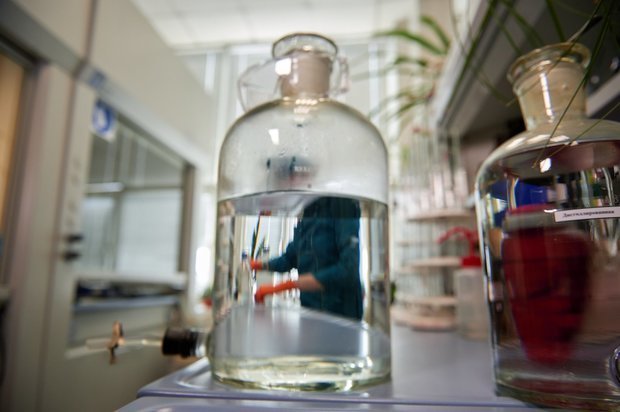
Margarita Urmanova, the head of the refinery laboratory, is sure that Veronika is already an almost ready-made chemical analysis engineer, that is, she is ready for the next step up the career ladder. This is confirmed by the activity of the young specialist in various competitions of professional skill. The laboratory assistant herself emphasises:
“I want to learn more about my profession, and the company provides everyone with prospects for development. The main thing is that the person himself or herself aspired. Skill contests have been held for several years. And everyone has the opportunity to prove themselves. If there is a desire, then there is an opportunity to move up the career ladder.

Her colleague Lyudmila Pavlova, a laboratory assistant of the 5th category of chemical analysis of the Gasoline Plant laboratory, also thinks so. By the way, she has been working here since the first days of the laboratory's creation — since 2005. She is also sure that none of the productions can be considered separately. They are all important to the common cause.
“And, of course, we have all professionals here at TAIF-NK. It is very important for the oil refining industry to have a professional laboratory with employees who have the proper level of training. Professionals always guarantee the quality of the work performed, thereby confirming the quality of the plant as a whole," she emphasises.
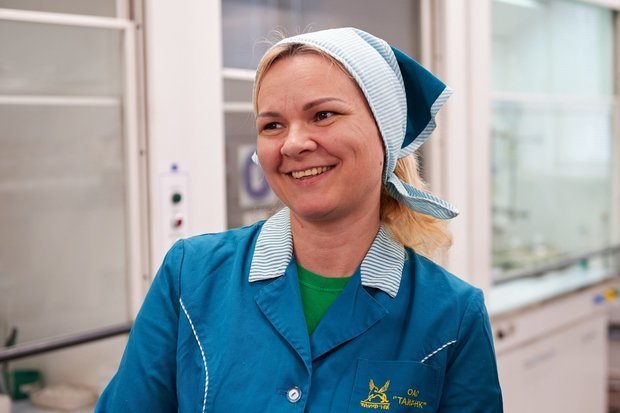
Lyudmila Pavlova has been in love with chemistry since childhood. Even at school, as she admits, she knew for sure that her future profession would be connected with this science. After graduating from the institute, she finally decided where she would work and she has been working at TAIF-NK’s Petrol Plant for 18 years now.
“This isn’t just a workplace. This is my vocation. Here, your head works, you analyse production quality. It is interesting! It is chemistry! You see the result of work of the whole factory in general: from the very beginning to the end product,” the specialist continues confessing her love for the profession.
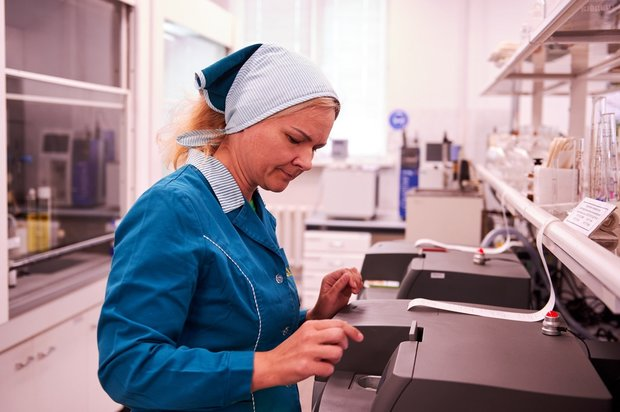
Certificates of a lot of finished products are issued precisely on the basis of laboratory analyses and research. And on the way home after work, when it is time to fill the car, the laboratory assistant of Petrol Plant doesn’t think twice about the branch of a petrol station: what is done at TAIF-NK is done well, she believes.
“What do I feel at this time? I feel satisfaction of the job of my favourite company, which also means my work, its results,” Lyudmila Pavlova stresses.
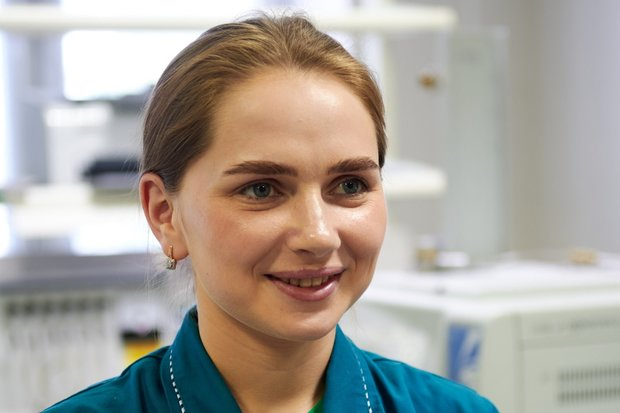
“The chemical and analytic laboratory is a very important production link. We produce certified products and there can’t be mistakes in our work,” 5th-category chemical analysis laboratory assistant Tatiana Kandakova clearly answers the question about the importance of laboratories. The lady has been working in the Heavy Residues High Conversion Complex for three years now.
“We have the state-of-the-art equipment. Moreover, besides the devices determining the quality of products according to Russian standards, we have devices that control the quality by the international ASTM standard,” she talks about the laboratory she works in with unhidden pride.

Like her colleague from Petrol Plant, Tatiana has been dreaming about chemistry since childhood. After school she studied in Kazan Chemical and Technological Institute and sent her CV to TAIF-NK. Why? This is simple:
“It is one of the best companies! And I want to tell those who think about what profession to choose today they should try their hand at chemical analysis. It is a very vibrant and claimed profession. Also, there is always room for growth and development.”
Tatiana Kandakova especially noted in the interview that laboratories were an active participant in all production processes. Nuances of production regimes to process every lot of feedstock and their correction in process are determined here:
“We completely control all processes — from feedstock delivery, creating recommendations for plants, at all production stages and to the production of end products we certify before shipping to consumers.”
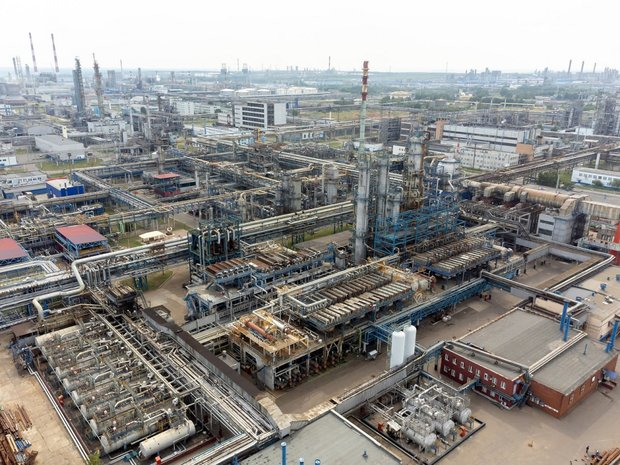
The operator, machinist and laboratory assistant are just three of a multitude of professions in the oil processing sector in general and in plants of TAIF-NK JSC in particular. We will continue talking about specialities and people working in the company in our next reports.